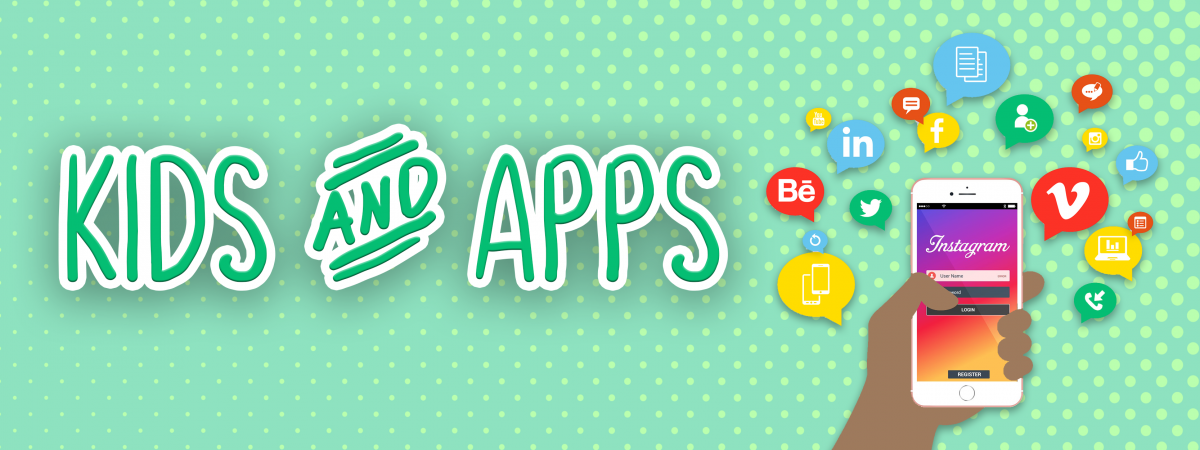

Make sure your kids are being APPropriate!
Not to state the obvious, but technology and the Internet have made life a lot more convenient. Planning a date night and don’t know what movies are playing? Ask Siri. Want to know if a new restaurant is good? Check out Yelp! Lost? Google Maps and Waze have your back. The Internet has become a part of our everyday lives. However, while the Internet brings a lot of benefits, there are also some very dangerous things happening on the Internet- especially with our teens.
Almost every time I scroll through Facebook or look at the news, there is a story about teenagers getting into trouble on the Internet. Part of my job as a Community Educator for Alliance For Children is staying up-to-date on the technology world so that when I talk to children and teens, I can answer any questions they may have. Being that we are in the field of protecting children both in the real and virtual world, we wanted to share a list with you about some apps that parents of teenagers should know about. These apps are not inherently dangerous, but they do provide opportunities for bad decisions.
Although this list is not extensive, we tried to include the apps we hear about most often.
- Snapchat: Snapchat is an app that allows you to send a picture or a video from your phone to another person. It allows users to determine how long the person can view the image or video until it disappears. Almost 90% of students in 6th-8th grade will raise their hands when I ask who has a Snapchat. Many Snapchat users believe that if they are going to send sexts, that Snapchat is the way to go. However, these images don’t self- destruct. It is very easy to recover a Snap or take a screenshot. Unfortunately, Snaps are being seen more and more frequently on revenge porn sites. With that being said, Snapchat is making strides to remind teens that nude pictures or videos are not allowed.
- Omegle: Omegle is an online chatroom that allows random strangers to talk to one another. According to Common Sense Media, “Parents need to know that Omegle is an anonymous chat client with which users discuss anything they’d like. This can easily result in conversations that are filled with explicit sexual content, lewd language, and references to drugs, alcohol, and violence. Many users ask for personal data upfront, including location, age, and gender, something kids might supply (not realizing they don’t have to). Adults wishing to chat anonymously may find use in this app, but kids should be kept far away.”
- Kik: Kik is an instant messaging app that allows the exchange of pictures, videos and messages. The dangerous thing about Kik is that it offers no parental controls and there is no way of “authenticating users,” which makes it very easy for sexual predators to use the app in hopes of interacting with minors.
- Yik Yak: Yik Yak invites users to post “Yaks” that can be viewed by the nearest 500 Yakkers who are closest to the person who wrote the Yak. All of this, of course, relies on your GPS tracking. Yik Yak is entirely anonymous, allowing for zero accountability, and users are regularly exposed to sexually explicit content, profanity and personal attacks.
- Audio Manager: Audio Manager seems like it would be an app that allows your teen to store their music, however, it is an app that has absolutely nothing to do with music or audio files. This app allows teens to hide things like nude photos and other apps (like ones that they may not be allowed to have).
- Vaulty: Vaulty stores photos and videos away from plain view. It is password protected and anyone who tries to access the app with an incorrect password will have a photo taken of them.
While these apps can present opportunities for bad decisions, the best thing you can do as a parent is communicate with your child about appropriate and inappropriate Internet usage. New apps seem to surface daily, so make sure you are talking to your teens about what they are doing online.
If you are interested in my sources or learning more, check out the links below!
- http://www.huffingtonpost.com/entry/the-12-apps-that-every-parent-of-a-teen-should-know-about_us_56c34e49e4b0c3c55052a6ba
- https://www.teensafe.com/blog/find-hidden-apps-your-teen-doesnt-want-you-seeing/
- http://foreverymom.com/mom-gold/parents-kids-10-dangerous-apps-time-hit-delete/
About the Author
Carol Logan is a Community Educator with Alliance For Children who spends close to 90% of her time in schools located around Tarrant County talking to children about personal body safety, through a program called P.S. It’s My Body and Internet safety, through a program called Netsmartz. When Carol is not at work, she is playing with her dog Bodie and spending time with family.



